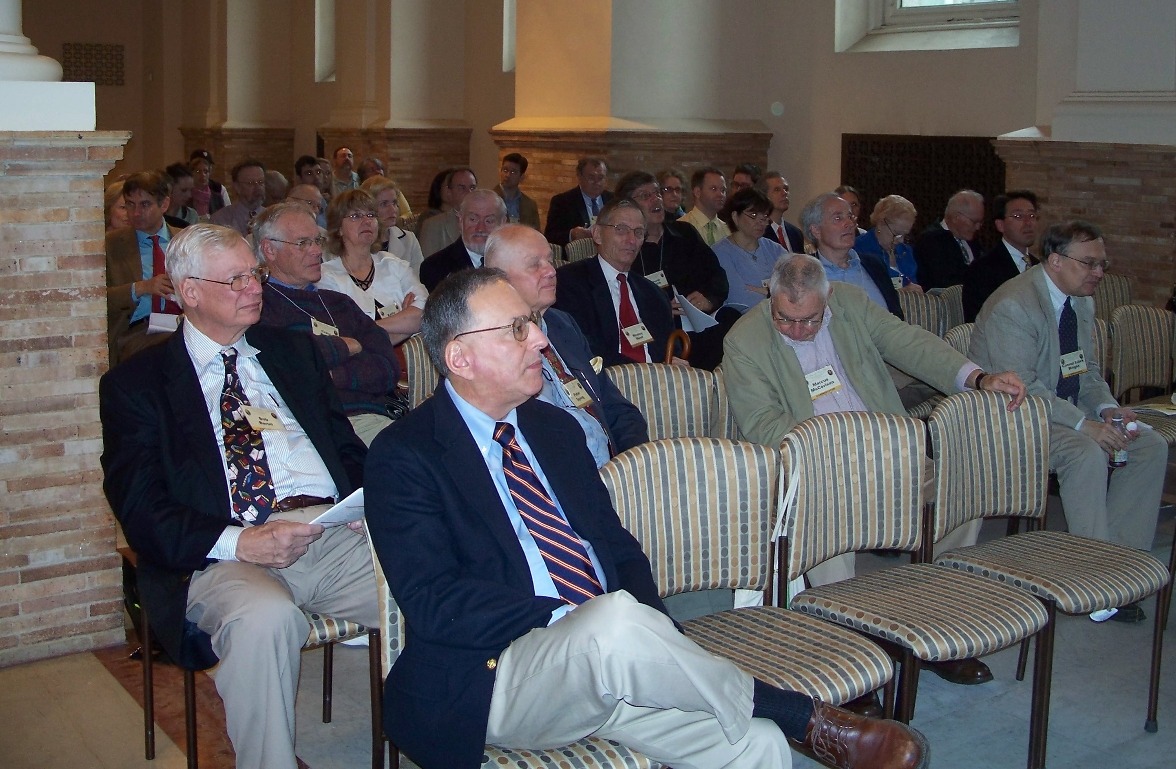By Jeremy Dibbell
The sharp-eyed crew from the MHS Publications department alerted me to a very interesting section in one of our collections, the John Pierce memoirs, 1788-1849 (Ms. N-714). Rev. Pierce (1773-1849) was the minister of the First Parish Congregational Church in Brookline, and was also a longtime member of the MHS (elected in 1809, and a member of the Council from 1813 through 1834).
In his eighteen-volume memoir, Pierce includes “death notices and sketches of other ministers, Harvard classmates of the Class of 1797, and others; notes on attendance at annual Harvard commencements and public exhibitions, conventions of Congregational ministers, dedications of churches and other institutions; and attendance at numerous meetings of local societies and clubs, among them the Mass. Bible Society, Phi Beta Kappa, Thursday lectures, Society for Propagating the Gospel Among the Indians and Others in North America, various temperance societies, Dudleian lectures at Harvard, and the Mass. Congregational Charitable Society. The volumes also contain notes on various journeys and visits with individuals, his work as a minister, Boston ministers, and Harvard classmates; and copies of letters” (text from the collection description).
In the first volume of a “new series” of his memoir, begun in June 1843, Pierce wrote a short introduction to the project, noting that he as a Harvard student he began “to write certain memoranda.” In January 1806, he continues, he “procured a bound volume, and began … to make a more formal record, than I had before attempted.” His original series, including transcriptions of his pre-1806 notes, filled ten volumes, and covered “a period of precisely forty years.” Pierce writes that he did not originally intend to continue keeping such a record, but “though on the borders of threescore years and ten, as my health remains so firm, I have concluded to prolong my Memoirs, so long as God shall continue the ability for such a service.”
Following this brief introduction, Pierce writes “I intend, that all these volumes, lettered on the back, Memoirs, shall be deposited by my Executor or Administrator, be they more or fewer, in the Library of the Massachusetts Historical Society.
“My reasons are, that this is the place expressly designed for such deposits, where they will be will kept most safely, and can be consulted most conveniently.
“Were they left to my family, it is probable, that they would, ere long, be scattered, defaced, and lost.
“But in a public Library, where no Manuscripts are allowed to be taken away, they stand the best chance of preservation.
“These Memoirs are not such as I could desire, being written without alteration or amendments, as the events, which they relate, transpired. I doubt not, that many errors may be detected, and that many of the records may savor of the prejudices and partial judgments of their writer.
“But such as they are, they are bequeathed, without reserve to The Massachusetts Historical Society by one of its devoted members, John Pierce.”
Following his death in 1849, Pierce’s memoirs did come to the Historical Society as per his wishes. They remain available for convenient consultation to this day, both in original form and in the form of long extracts published in various volumes of the Proceedings.


 Following a really fascinating keynote address by Ted Widmer on Sunday evening (“People of the Book: Adams, Jefferson and the Koran”), we had two days of panel discussions (“Adams and Jefferson as Book Collectors” and “Libraries, Law, and Political Philosophy” on Monday; “Adams, Jefferson, and Nationalism” and “Libraries and the Enlightenment” on Tuesday). Most of the sessions were held at the Boston Public Library, with the exception of Monday afternoon’s panel, which we hosted here at the MHS. Conference-goers were also offered tours of the John Adams library at the BPL, the “Gluttons for Books” exhibit at MHS, and the Adams National Historical Park in Quincy.
Following a really fascinating keynote address by Ted Widmer on Sunday evening (“People of the Book: Adams, Jefferson and the Koran”), we had two days of panel discussions (“Adams and Jefferson as Book Collectors” and “Libraries, Law, and Political Philosophy” on Monday; “Adams, Jefferson, and Nationalism” and “Libraries and the Enlightenment” on Tuesday). Most of the sessions were held at the Boston Public Library, with the exception of Monday afternoon’s panel, which we hosted here at the MHS. Conference-goers were also offered tours of the John Adams library at the BPL, the “Gluttons for Books” exhibit at MHS, and the Adams National Historical Park in Quincy.